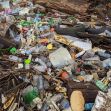The U.S. Environmental Protection Agency is facing a lawsuit brought by several environmental groups. The lawsuit takes issue with recent pollution guidelines the EPA released in early 2023.
According to a petition brought forward by over a dozen environmental groups, the EPA is accused of violating the Clean Water Act. The groups including the Center for Biological Diversity, Clean Water Action, Food & Water Watch, and others detail in their petition that the EPA has failed to update and tighten pollution controls every five years if new technology allows them to do so.
According to the complaint, for nearly 40 years, regulations have not been updated for industrial plants including oil refineries and plastic manufacturing plants that release harmful chemicals including cyanide, benzene, mercury, and chlorides through billions of gallons of wastewater.
Jen Duggan, the deputy director of the nonprofit Environmental Integrity Project helped coordinate the lawsuit against the EPA. She explains, “It’s completely unacceptable that EPA has, for decades, ignored the law and failed to require modern wastewater pollution controls for oil refineries and petrochemical and plastics plants,” adding “We expect EPA to do its job and protect America’s waterways and public health as required by the Clean Water Act.”
The environmental groups are seeking to have an order issued that would force the EPA to go over their regulations and revise them to meet current standards as outlined by the Clean Water Act. The revision process would require the government to analyze whether new technology is available to curb pollution in industrial plants across the nation. If successful, over 1,000 facilities across the U.S. could be impacted by updated regulations.
The environmental groups take issue with the regulations released earlier this year arguing that they failed to outline restrictions from regulated industry sectors that are known to have a high carbon footprint. These sectors include industrial plants that manufacture plastics, fertilizers, metal, plant pesticides, and others.
These regulated industries have been linked with producing and releasing toxic chemicals and compounds including lead, benzene, nitrogen, and toxic metals. One highly contested compound is per-and poly-fluoroalkyl substances (or PFAS) as they are commonly known. This compound is used in making fluoropolymer coatings and common household products that resist heat, stains, water, and grease. Often found in non-stick products, PFAS have been dubbed “forever chemicals” because of their persistence and harm. Once produced, these chemicals stay in the environment for extended periods, resisting a natural breakdown. As a result, these chemicals have made their way into waterways, plants, and animals causing harmful consequences for both the environment and humans.
The environmental groups point to recent data that highlights the impact these industries have had on the environment. They argue that at least 81 oil refineries across the U.S. have released 16 million pounds of nitrogen pollution in the U.S. waterways in 2021. These pollutants have been linked back to increased health concerns including cancers and chronic illnesses. In areas where these industrial plants are highly concentrated, including Newark, N.J.'s “chemical corridor” and the Mississippi region’s “Cancer Alley,” a disproportionate number of residents are reported to suffer from a range of health ailments linked back to the released toxins.
In their effort, the environmental groups aim to curb the manufacturing and distribution of these harmful chemicals into the environment.






